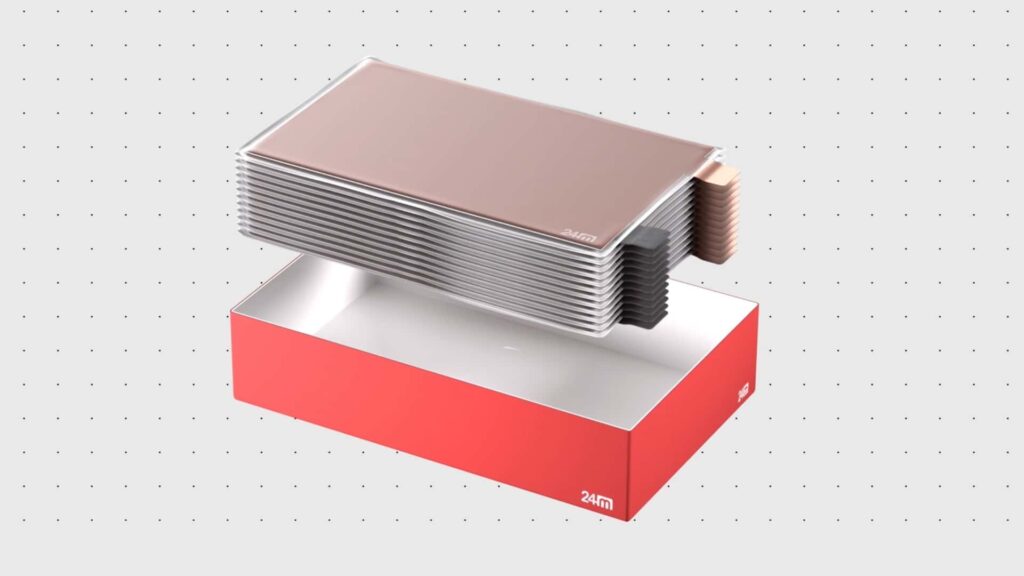An American battery company is revolutionizing the way lithium-ion batteries are made with its innovative electrode-to-pack design. Traditional battery pack designs often contain a significant amount of inactive materials, such as the cylindrical cell casing, which do not contribute to energy storage. In contrast, the electrode-to-pack method developed by Massachusetts-based 24M Technologies integrates electrodes directly into the battery pack, eliminating the need for non-energy-carrying components like plastics and metals.
This new approach aims to maximize energy efficiency and cost-effectiveness by focusing on active energy-carrying components within the battery pack. By eliminating unnecessary hardware, the company believes they can increase energy density and range significantly. In fact, 24M claims that their sealed electrode-to-pack design could potentially offer a range of 1,000 miles per charge, doubling the capabilities of current top-performing electric vehicles.
24M’s CEO, Naoki Ota, emphasized the importance of advancing battery innovation in the U.S. to compete with overseas manufacturers. The company’s electrode-to-pack batteries have the flexibility to accommodate various chemistries, sizes, and applications, making them suitable for a wide range of uses, from electric vehicles to grid storage systems.
While the concept sounds promising, scaling up production and addressing potential challenges will be key to the success of this new technology. Adapting existing battery supply chains and infrastructure to accommodate the electrode-to-pack design may require significant investment. Additionally, ensuring effective thermal management and diagnosing defects in a fully sealed battery pack present unique challenges that will need to be addressed.
Nevertheless, 24M’s innovative approach to battery design reflects a strategic effort to compete with established players in the industry, particularly in China. By focusing on technology and innovation, the company aims to carve out a niche in the market and provide domestic consumers with cutting-edge battery solutions. This disruptive technology could potentially give the U.S. a competitive edge in the global battery market, challenging the dominance of companies like CATL and BYD.
In conclusion, 24M’s electrode-to-pack batteries represent a significant advancement in lithium-ion battery technology, offering the potential for increased energy density, range, and cost-effectiveness. While there are challenges to overcome in scaling up production and addressing design complexities, the company’s commitment to innovation and competitiveness bodes well for the future of American battery manufacturing.

